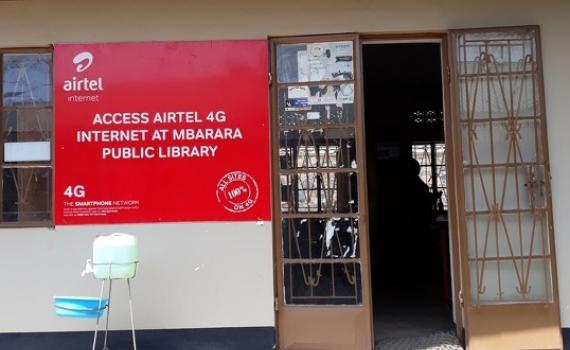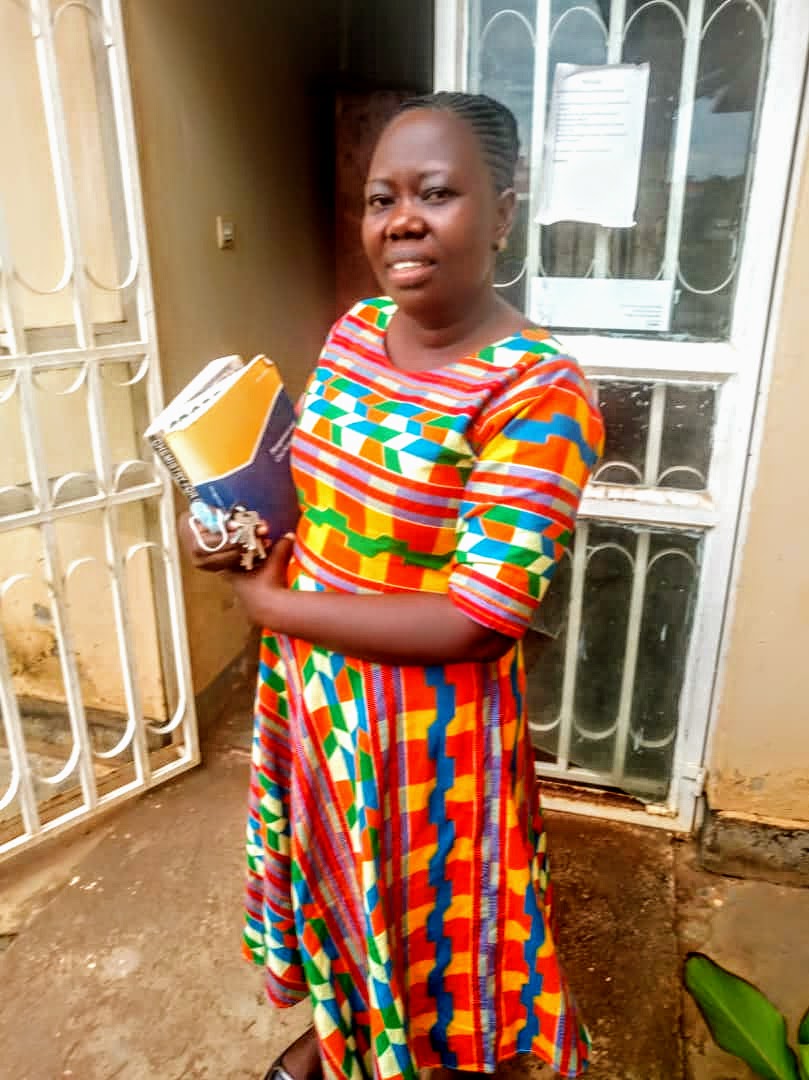
In Soroti Public Library, 300 miles north of Kampala, excitement is growing about a new ‘Digital Skills @ Your Public Library’ project, offering training to women and unemployed youth through public and community libraries. Soroti is one of 25 libraries in Uganda taking action to reduce the digital divide in a country where less than half the population use the internet. This low number is driven by a lack of affordable access, availability of technology and limited digital knowledge. Women and unemployed youth face particular challenges getting online, yet they stand to gain the most from learning digital skills.
Over two years the ‘Digital Skills @ Your Public Library’ initiative, implemented by EIFL and partners, will target 13,500 individuals across 25 libraries in Uganda. The project will raise awareness about the facilities available at libraries and offer training and support to librarians so that they, in turn, can engage their communities in learning. A combination of online classes and group library training on both computers and mobile devices will be offered to communities through libraries.
Initial visits have been made by project coordinators to meet and engage local officials and libraries and to consult with people who could potentially benefit from training in Soroti and each of the selected libraries across the country. These visits set out to establish, early on, the digital skills that could have the biggest impact on people’s lives in each community, revealing a desire by community members to learn about subjects including farming, hairdressing, searching for a job, business administration, online banking and much more.
‘SKILLS TO ADAPT TO A CHANGING WORLD’
With its red metal roof and cream walls, the Soroti Public Library, stands in the heart of Soroti town, in a district that records some of the highest poverty rates in Uganda. The library connected to the internet two years ago, and since then the 10 computers available for use by the community have been in extremely high demand. “I hope this training is going to enable me to teach others, so that they can work independently online, both in the library and outside on their own,” said Librarian, Mercy Akia, “The COVID-19 lockdowns made some of the businesswomen in our community realize how important digital skills are. Without knowledge on how to access online resources they could not contact suppliers in the city, they now understand the need to learn new skills to adapt to a changing world.”
Asia Kamukama, Executive Director of the Maendeleo Foundation, one of the partners in the project, is freshly back from the recent consultation trip. “In every library we visited I saw lots of excitement from women,” she said, recalling one women who told her: “I will use every spare minute I have to try and learn something new. People judge us because we aren’t educated and are without skills. This project is an opportunity for us to prove that we can learn and improve our prospects for the future.”
In the coming weeks Mercy Akia and other librarians from across Uganda will begin their training, strengthening existing digital knowledge and equipping themselves with skills to improve and tailor digital literacy programmes for community members.
The project is starting during a key moment for Uganda. Closure of schools due to COVID-19 has sharpened focus on the provision of learning in informal settings and re-established expectations of communities for how this can take place.
The 'Digital skills @ your local library' project is funded by Belgium through the Wehubit programme implemented by Enabel. The project is implemented by the EIFL Public Library Innovation Programme, Peer 2 Peer University, National Library of Uganda and Maendeleo Foundation.
SHARE / PRINT









